Salomon MAIER, 1877 – 1944
We first heard about the “Convoy 77” project in December 2020. We were intrigued by the theme of the project and the fact that we were to write the biography of Simon Maier, a Jewish man from our town, inspired us to play the role of amateur detectives.
To gain a better understanding of the background to “Convoy77”, we contacted the former director of the Botoșani History Museum, Median Gheorghe, and the leader of the Botoșani Jewish community, David Iosif.
We thus discovered that there was once a sizeable Jewish community here, with about 22,000 Jews and some 50 synagogues. Unfortunately, however, there is now only one synagogue, Oiche Sil, which was built in 1834.
In 1887, the Old Town center of Botoșani was destroyed by a major fire. The following year, the Jews rebuilt many of the buildings in brick, in which Jewish merchants and skilled workers set up shop.
At that time, Jews held important positions in the city, as lawyers, doctors and teachers, for example, or as dressmakers, tailors, carpenters and cabinet makers etc.
It was in this context that Salomon Maïer, the main subject of our research, was born, on June 16, 1887, in Botosani (in the town or in the county?!). Later, according to the records kept by his family, he trained as a tailor. We only know the names of his parents, Schleim Salomon and Lilia Leiba. They were a family of modest means, which is why they are not listed in the local archives. Mr. Median explained the reason for this. According to correspondence between the Romanian historian, Nicolae Iorga, and a friend of his, the town records were thrown out in around the 1930s, and left for the local merchants to use as wrapping paper for their products.
We realized at that point that our mission had become almost impossible and that our research would be based largely on intuition and our ability to interpret the documents provided by Mr. Juhel Victor, the husband of Salomon’s granddaughter.
At the beginning of the 20th century, Salomon left Romania with Clara Lazarovici, his girlfriend, born in Iași, for Marseille, in France. It was there that their first son, Oscar Maïer, was born in 1902. They went on to have two more children, Anna, in 1906, and Samson, in 1914, who were both born in Paris.
In 1917, Salomon and Clara were legally married, according to the copy of the documents we were sent.
We found a photo of Salomon in military uniform, together with some of his fellow soldiers, but we were unable to find out where he did his military service.
The family lived in several places in Paris, including 17, rue du chevalier de la Barre, and 5, passage Collin, before finally settling at 52, rue Ordener.
Life was not easy for the three children, especially the boys: Oscar fell victim to Parkinson’s disease during his military service (1920-1922), and Samson went off to war, during which he died fighting for France. The daughter Anna, on the other hand, had a happier life: she was a milliner, married a man called Moïse, and had three children. They lived for a while in Marseille and then moved to the Allier department, which was a safer area for Jews.
To return to Salomon Maïer, we know for sure that he and his wife were arrested three weeks before the liberation of Paris, interned in Drancy and deported on the last of the large convoys to Auschwitz, Convoy 77.
They died in 1944.
Some comments from the students from the A.T. Laurian high school in Botosani, Romania, who took part in the project:
Gabriela Avădănei:
When Ms. Mangîr introduced us to the project, I felt sure that I wanted to get involved. The Holocaust is a subject that interests and intrigues me. I have read dozens of articles on this subject and also some survivors’ testimonies. While researching the story of Salomon Maïer, I realized how much freedom we now have to do whatever we want, without being judged on the basis of our nationality. For us, it is interesting to learn these stories. We feel compassion for and solidarity with those who died, those who left this world in torture. At the same time, we discovered their culture, their way of life and the pain they felt, passed on by those who told us about the life of the Jews living in Botosani.
The “Convoy 77” project was a very moving experience for me and one that was very rewarding, both on a personal and intellectual level.
I would like to thank Ms. Claire Podetti who guided us in our research and sent us the initial documents and Mr. Victor Juhel who was kind enough to share with us his meticulous work on the members of his family. We wish we could have included more in this biography.
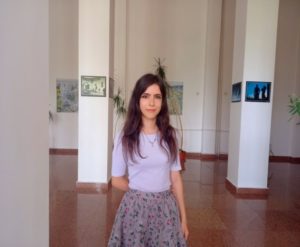
Alexia Nădejde:
I am glad that I had the opportunity to participate in this project. In addition to our research on Solomon Maier, we learned a lot about the Jewish community, visited the synagogue in our town and met some great people. As soon as our teacher told us about the Convoy 77 project and its focus, I was intrigued and decided to participate. I don’t regret it for a second. I’m glad I was part of this team and pleased to have learned so many new things, even though the topic itself is distressing.
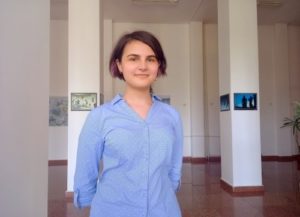
Denisa Stratulă:
For me, this project meant a trip back in time to the good old days. I went back in time, and while I was treading carefully and with a heart full of emotion, I discovered valuable information about the life of the Jews and about the Holocaust. After analyzing all this information, I realized that these were lessons for life, about moral values that were hidden and waiting to be discovered by us, the young explorers going back in time. It was a unique experience, which I will always remember with great feeling!
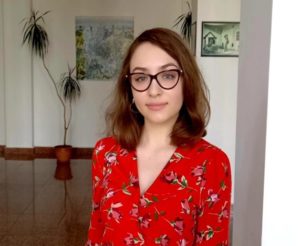
Teona Christiana Merticariu:
I was fortunate and happy to participate in this project. As a result of, I was able to find out more information about Jews everywhere, including Jews in Botoșani, and also about important places and events for our city. Being a freshman in high school during the pandemic restrictions, I was not able to socialize with my new classmates. The project helped me to make new friends. Fortunately, we managed to meet with Jewish representatives and historians and we were able to visit the Botosani synagogue, which added weight to our research. Even though we did not find much specific information about Salomon Maier, we learned about the life of the Jews in Botosani, a subject that I did not know about until now.
I am also happy to have discovered that here, in our city, Jews and Romanians have always had a good relationship and they have not been driven out or persecuted.
What an exciting experience!
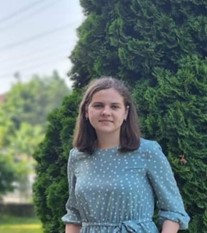
Bianca Câtea :
The “Convoy 77” project has been nothing but beneficial to my general knowledge. I had the opportunity to research a person I had never heard of and yet I found it fascinating and moving. I feel full of admiration for all those people who defended their heritage, suffered so much pain and even died without being guilty of anything. I am disgusted by it and it makes me question a lot about what happened during that period.
The project has been morally rewarding for me.
I am also grateful and impressed by Mr. Victor Juhel’s research and edition of the biography of his family, which he kindly sent to us.
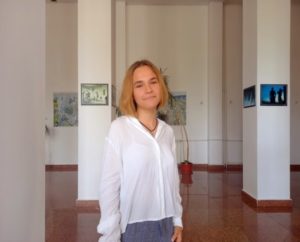
Alexandru Cotoi :
This project was a history lesson for me. I now know more about the Holocaust better and I also found out about the tragic life of Salomon Maier, a Jew who was killed in Auschwitz. It was all the more moving because this person was born in Botoşani, his family lived here and he knew the same streets and the same places as us…
What a fate! The only disappointment I experienced during our research was that the local archives office, (which, incidentally, was closed during the pandemic), had not kept any records relating to this family. However, at least it allowed us to access them and to understand the research process.
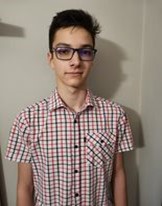
Alexandru Nechifor :
I appreciate the fact that I was able to be a part of this project because I learned a lot through our research about the life of the Jews (and in particular, in our case, Solomon Mayer), the history of the Holocaust and many other things. After going to the synagogue in our town and learning about Solomon, I learned an important history lesson and moral values that will help me in the future. It was an unforgettable and unprecedented experience that will remain in my heart forever!
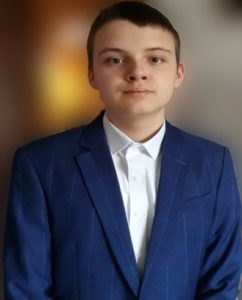
Photos taken during the research
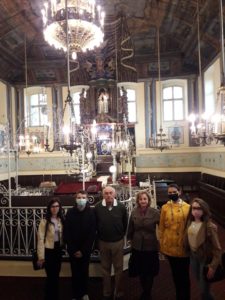
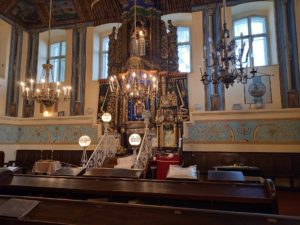
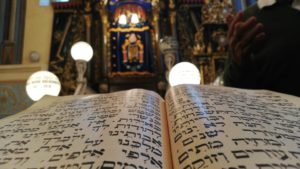
Photos taken in the Synagogue in Botosani
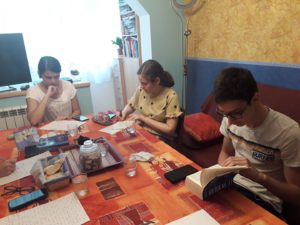
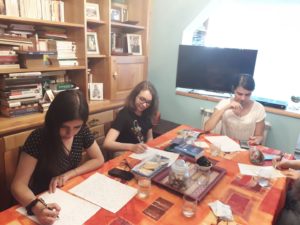
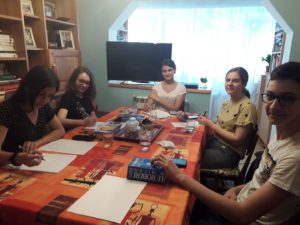
photos prises lors du tri des documents
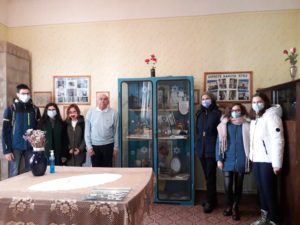
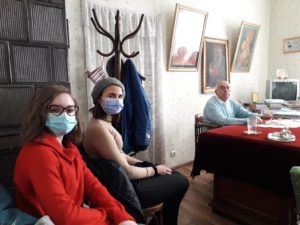
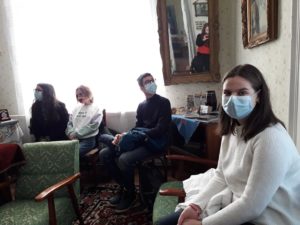
photos prises lors de la visite au Centre de la Communauté Juive


 Français
Français Polski
Polski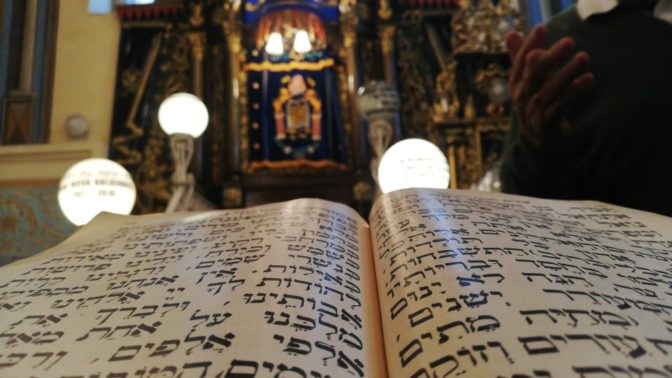

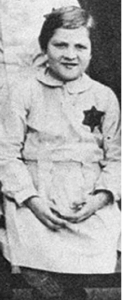







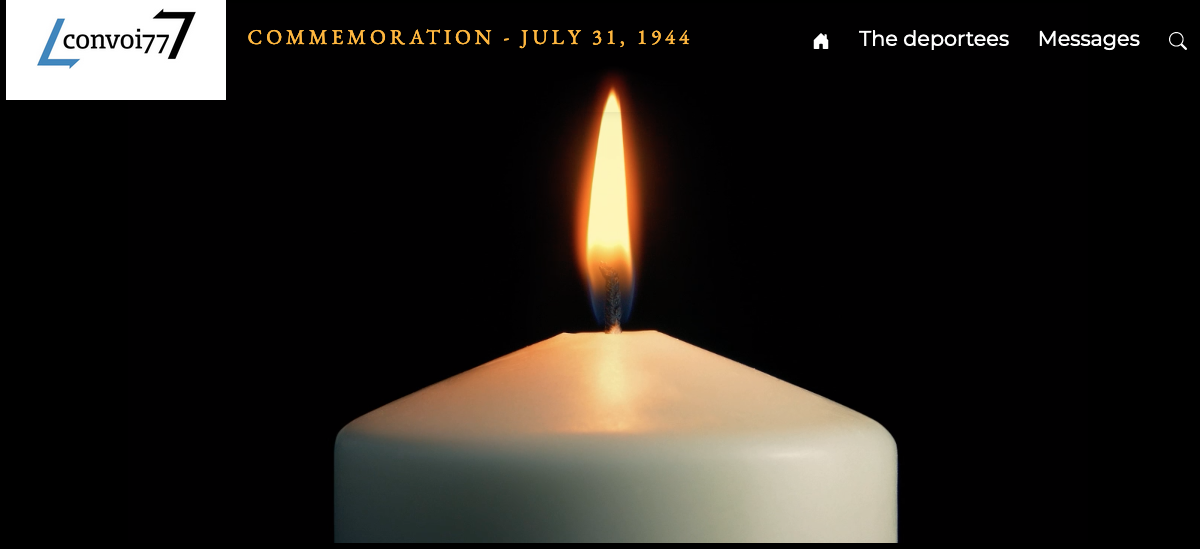
il y a une petite confusion à l’état-civil. Anna Loeb n’est pas allée dans l’Allier.